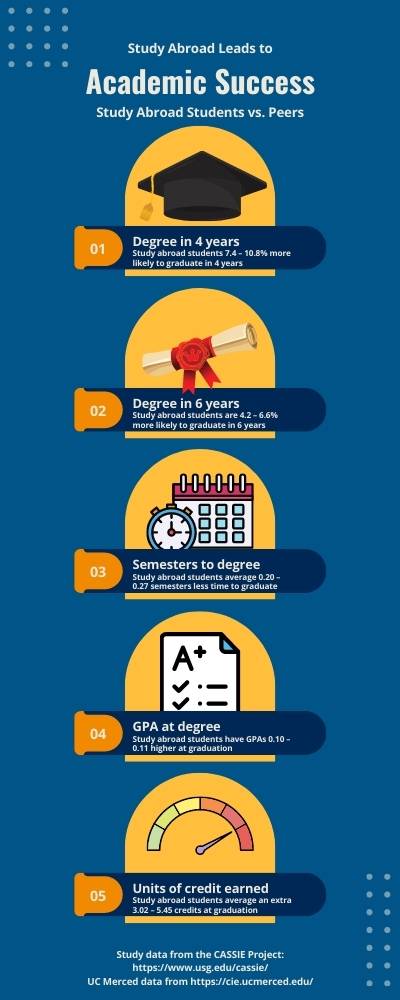
Study abroad students are more likely than their peers to graduate at 4 year and 6 years
New data from the CASSIE (The Consortium for Analysis of Student Success through International Education) project explores the impacts of study abroad on student academic success. The CASSIE project report, released in spring 2022, studies metrics for student success for more than 30,000 students across 36 U.S. universities of various profiles. Controlling for numerous academic and demographic factors to tease apart correlation from causality, the project aims to identify how study abroad impacts student success.
One area of success identified through the project is the rate at which students graduate in 4 years and also at 6 years. This holds true across a number of student groups, but the impact is magnified for students who might fall into the following categories:
- Need-based financial aid recipients
- Underrepresented minority groups*
- First-generation college students
- STEM and non-STEM students alike, but greater gains for non-STEM students
Based on UC Merced's 2021-22 enrollment profile, the predicted improvement in the 4-year graduation rate for study abroad students would be at least 7.4% and as high as 10.8%.
Similarly, the predicted improvement in the 6-year graduation rate for study abroad students would be at least 4.2% and as high as 6.6% compared to their peers who do not study abroad.
Completing a degree even six (6) months earlier could mean $27,630 in extra earnings, $4,250 less in student loans, and reduced loan repayments.
But the CASSIE project measured student success in more than just graduation rates at 4 or 6 years. We'll look at what other CASSIE findings suggest.
* Underrepresented minority groups, as defined by the CASSIE project includes the following:
- American Indian/Alaskan Native,
- Black or African American,
- Hispanic, and
- Native Hawaiian/Pacific Islander




